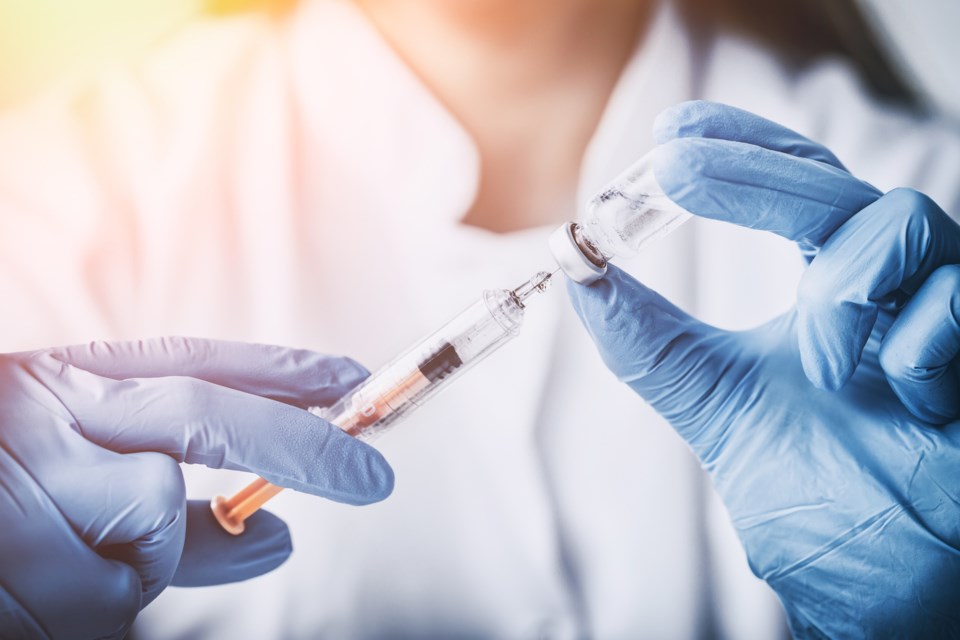SooToday received the following letter to the editor from Dr. Lucas Castellani, an infectious diseases physician in Sault Ste. Marie, regarding Global Antibiotic Awareness Week:
Antibiotics are one of the best medical inventions of all time. Their discovery has saved countless lives over the past century. If it wasn’t for antibiotics we probably would not have advanced so quickly in the fields of transplantation and cancer care. But unfortunately, like all medical therapies, they have their limits.
Since the discovery of Penicillin 90 years ago it has been an arms race between antibiotic development and microbial resistance. However, until only recently, we have been devoid of new antibiotics for these ever evolving resistant organisms. Even today, very few antibiotics are being developed to fill this gap. This is scary. In 2014 the World Health Organization (WHO) suggested that more people will die globally from resistant organisms than cancer itself. We are seeing bacteria and fungi that are resistant to almost all known antibiotics.
So what can one do to help in this cause - to try to make a dent in a seemingly mammoth task? It’s Global Antibiotic Awareness week (Nov. 12-18, 2018), and I will outline some of the things that everyone could do to make a difference:
• Don’t take antibiotics “just in case”. There are many diseases that need antibiotics. However, more than 50 per cent of antibiotic prescriptions are inappropriate. Patients are receiving inappropriate antibiotics for anything from cloudy urine to colds and they aren’t always safe. For example, some cancer drugs don’t work as well in patients who have taken antibiotics. Please ask your doctor if you truly need this antibiotic and that the benefits outweigh the risks.
• Avoid “sharing” antibiotics. Don’t reuse them for other family members or friends as you can never be certain it is safe. Because antibiotics have so many side effects and risks, including the concern of resistance, always seek advice when considering taking antibiotics.
• Clarify your penicillin allergy. If you have a penicillin allergy then you are more likely to receive less effective treatment when you truly have an infection. By discussing with your health care professional, you may be able to debunk that allergy. This will allow your health care professional to use of more effective and less risky alternatives.
• Wash your hands. Resistant microorganisms usually spread from person to person, or from contaminated environments to others. By washing your hands and/or using hand sanitizer you can prevent yourself and your loved ones from contracting one of these difficult to treat microorganisms, and spreading them to others.
• Get vaccinated - especially the flu shot. Immunizations are the ultimate in preventing treatment for infection. Each year many people die of influenza, yet there is still an unfounded concern that it isn’t effective enough. When you compare it to drugs like aspirin for heart attack and statins for cholesterol, it's actually quite effective. Also, diagnostic testing to differentiate bacteria and viruses are not very effective yet. So, by preventing influenza, you prevent people from needing antibiotics “just in case” when the health care provider can’t tell it apart from other types of infection.
• Be conscious of antibiotic use outside of healthcare. This is a global issue and as we continue to use antibiotics inappropriately in livestock and veterinary medicine, as well as continue to improperly dispose of these drugs, we will continue to see an ongoing issue with resistance. Efforts can be as simple as limiting the antibiotics your pet receives and buying antibiotic free food.
Like most things in science and medicine nothing is black and white. There are complexities here that are undeniable. However, unless we all make a concerted effort to affect positive change, we may see this problem reach a tipping point of no return. Antibiotics, the miracle treatment of our time, may cease to be effective.
Lucas Castellani is an Infectious Diseases Physician in Sault Ste. Marie. Should you want to know more about this growing problem you can access the WHO website or reach out to Dr. Castellani with questions at [email protected]
